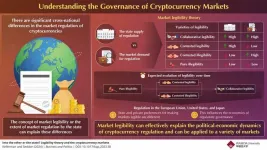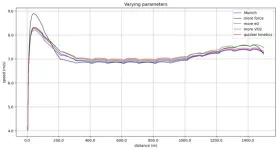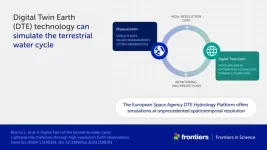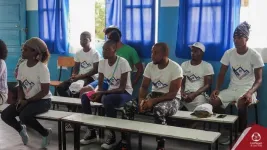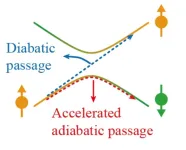Since its introduction, cryptocurrency governance has been one of the most controversial global financial topics. While some countries have established elaborate regulations for cryptocurrencies, many countries are still reluctant to oversee the markets, and some have outright banned them. Most studies suggest that public agencies naturally want to regulate markets and bring them into their purview. However, the significant differences in cryptocurrency regulation over the world call this view into question. Moreover, these differences cannot be explained by the development of the financial market and capacity of the state. This naturally leads to the question - what is the cause of these differences and what drives market regulation?
To answer these questions, Associate Professor Jack Seddon from the School of Political Science and Economics at Waseda University and Associate Professor Miles Kellerman from Leiden University’s Institute of Security and Global Affairs introduce the concept of ‘legibility’ to the analysis of financial markets. “The widespread debate over the extent to which cryptocurrencies should be regulated can be better understood as a political battle over whether to make private markets "legible" to the state. Our framework conceptualizes this dynamic as a balance of two variables: market demand for regulation and state supply,” explained Dr. Seddon. Their novel framework was presented in a study published in the journal Business and Politics on February 05, 2024. The study was funded by The Law, Politics and Economics of Financial Benchmarks: JSPS KAKENHI Grant Number 20K13438.
In this innovative framework, the supply and demand variables together determine the ideal-typical states of market legibility. The demand side represents the competing interests of the various market actors over seeking legibility and the supply side shows how likely the state is to regulate a specific market. When both demand and supply are low, the markets are in a state of pure illegibility with no regulation. In contrast, when both demand and supply are high, as is the case for most real markets, the markets are in a state of collaborative legibility.
Additionally, when the state supply is high and market demand is low, the markets enter contested legibility, where the state wants to bring the market into the legal purview, but market actors resist it. Alternatively, when the demand is high and the state supply is low, contested illegibility occurs. The researchers also presented an expected progression of markets through these legibility states, over time. According to this framework, most markets start in the state of pure illegibility and over time go through either contested legibility or illegibility to finally attain collaborative legibility.
They utilized this framework to study the evolution of the cryptocurrency market in the United States, European Union, and Japan. Their analysis revealed that all three went through the expected stages of legibility, albeit at different rates. The United States, for example, is currently in the stage of contested legibility, while the EU progressed from contested legibility to collaborative legibility. Japan, unlike the other two, quickly transitioned from pure illegibility to collaborative legibility. Furthermore, the findings also showed that once the final state is achieved, markets do not tend to regress.
These results suggest that legibility is a powerful concept that can also be applied to understand other markets. In the future, the researchers aim to study other markets and countries to realize their full generalizability. Emphasizing the significance of this study, Dr. Kellerman said, “This study is highly relevant to pressing regulatory concerns. For example, a prolonged state of contested legibility in the crypto market can delay the introduction of regulations that protect consumers. By mapping patterns of contestation over legibility, our framework takes a first step towards better understanding the political economy of financial regulation.”
***
Reference
DOI: https://doi.org/10.1017/bap.2023.38
Authors: Miles Kellerman1 and Jack Seddon2
Affiliations
1Institute of Security and Global Affairs, Leiden University, Netherlands
2School of Political Science and Economics, Waseda University, Japan
About Waseda University
Located in the heart of Tokyo, Waseda University is a leading private research university that has long been dedicated to academic excellence, innovative research, and civic engagement at both the local and global levels since 1882. The University has produced many changemakers in its history, including nine prime ministers and many leaders in business, science and technology, literature, sports, and film. Waseda has strong collaborations with overseas research institutions and is committed to advancing cutting-edge research and developing leaders who can contribute to the resolution of complex, global social issues. The University has set a target of achieving a zero-carbon campus by 2032, in line with the Sustainable Development Goals (SDGs) adopted by the United Nations in 2015.
To learn more about Waseda University, visit https://www.waseda.jp/top/en
About Associate Professor Jack Seddon
Jack Seddon is currently the Associate Professor of International Political Economy at the School of Political Science and Economics at Waseda University, Japan. He received his master’s and Ph.D. from the University of Oxford in 2012 and 2016, respectively. He is also the Principal Investigator of the Sterling Area Revisited Project, funded by an ESRC New Investigator Grant. His research focuses on international political economy and economic history. He has also co-authored book chapters on finance and governance, published by Oxford University Press, London: Edward Elgar and Cambridge University Press.
About Associate Professor Miles Kellerman
Miles Kellerman is currently the Assistant Professor of International Organization and Multi-level Governance at Leiden University’s Institute of Security and Global Affairs. He received his master’s and Ph.D. from the University of Oxford in 2015 and 2020, respectively. His research primarily focuses on economic crime. His other research interests include economic statecraft, multilateral development banking, and the regulation of global capital markets. Outside academia he has worked professionally on financial crime prevention both within a global bank and as a consultant in London, New York, Washington D.C., and Amsterdam.
END
